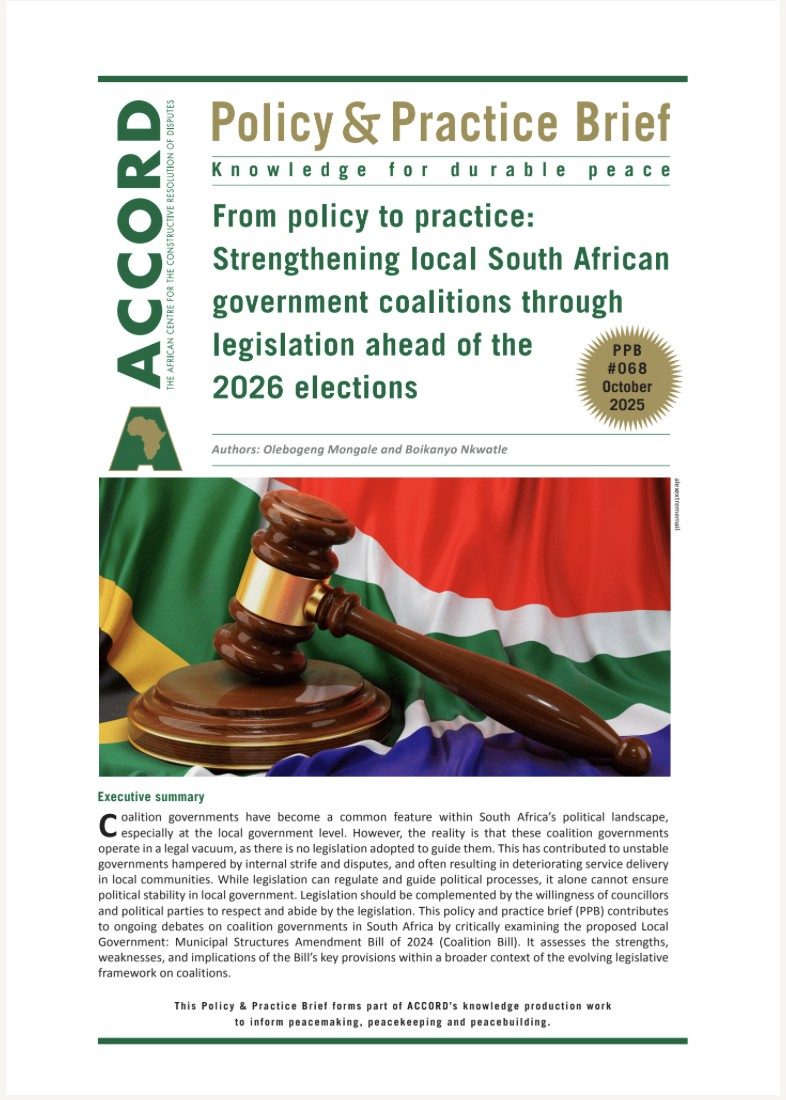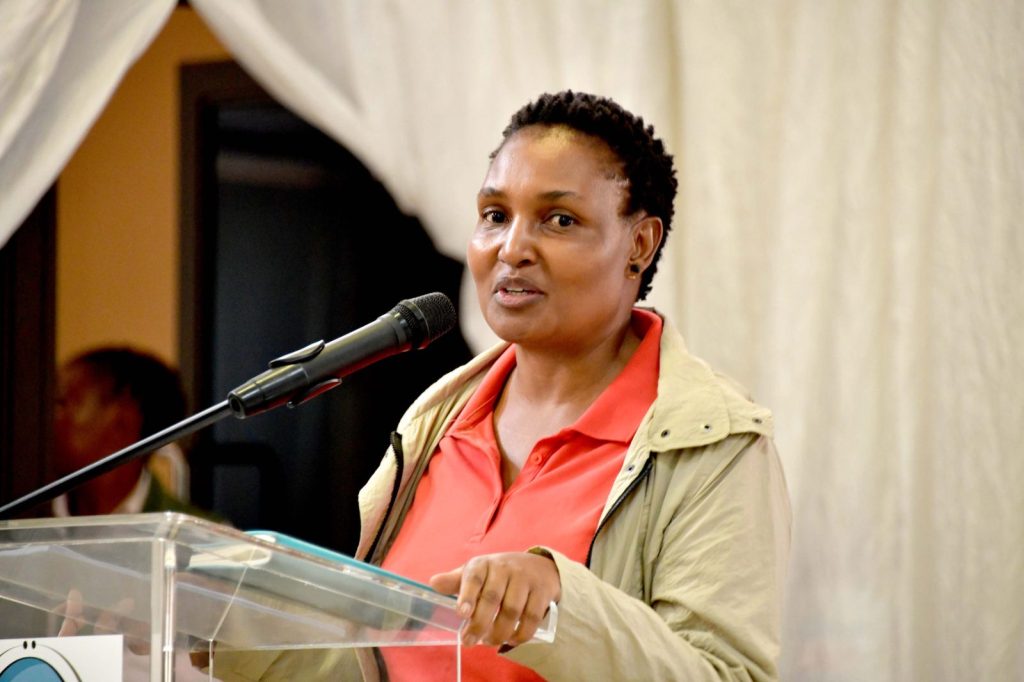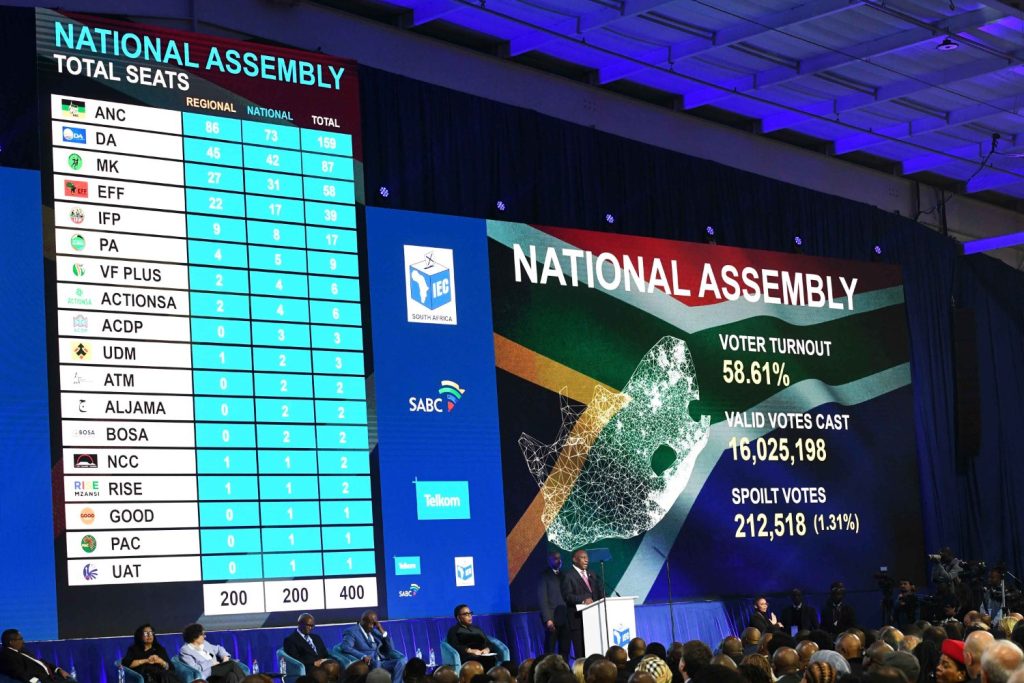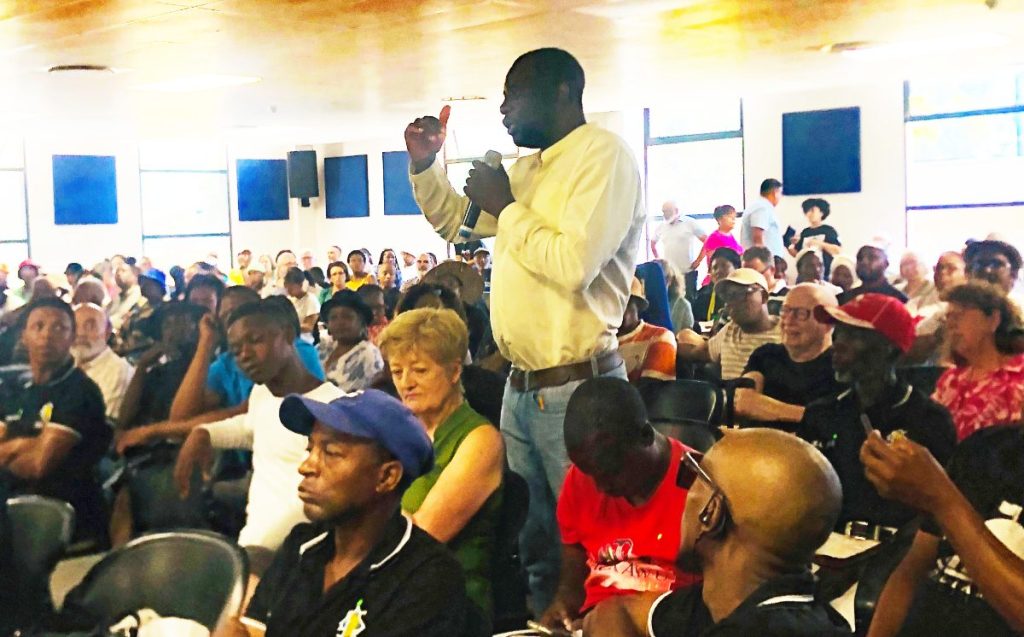
- Policy & Practice Brief
From policy to practice: Strengthening local South African government coalitions through legislation ahead of the 2026 elections
Executive summary
Coalition governments have become a common feature within South Africa’s political landscape, especially at the local government level. However, the reality is that these coalition governments operate in a legal vacuum, as there is no legislation adopted to guide them. This has contributed to unstable governments hampered by internal strife and disputes, and often resulting in deteriorating service delivery in local communities. While legislation can regulate and guide political processes, it alone cannot ensure political stability in local government. Legislation should be complemented by the willingness of councillors and political parties to respect and abide by the legislation. This policy and practice brief (PPB) contributes to ongoing debates on coalition governments in South Africa by critically examining the proposed Local Government: Municipal Structures Amendment Bill of 2024 (Coalition Bill). It assesses the strengths, weaknesses, and implications of the Bill’s key provisions within a broader context of the evolving legislative framework on coalitions.
Introduction
As South Africa approaches the 2026 local government elections (LGEs), the country grapples with a shifting and increasingly fragmented electoral and political landscape. At local government level, there has been an increase in coalition-led municipalities across all three municipal categories (metropolitan, district and local). Despite their growing prevalence, coalition governments continue to operate within a vacuum, with no legislation to regulate their functioning and governance. As Professor Pierre de Vos notes:
The South African Constitution does not contain specific provisions regulating the formation and functioning of coalition governments in the national, provincial and local spheres of government. Neither does ordinary legislation contain such specific regulatory provisions.1
In the absence of clear legal guidelines, coalition arrangements have often been informal, chaotic and unstable and prone to collapse, frequent turnover of executive leadership, policy disorientation, and weakened service delivery. This legislative gap has enabled opportunistic political behaviour, fostered unstable coalitions, and undermined effective and continuous governance. In an attempt to fill this void, South Africa introduced the Local Government: Municipal Structures Amendment Bill of 2024 (Coalition Bill) as a catalyst to regulate coalition governments.2
While efforts by the Department of Cooperative Governance and Traditional Affairs (COGTA) to introduce the Coalition Bill are a necessary step in the right direction towards addressing this gap, the urgent finalisation of the legislation by the seventh administration is needed. This is especially important given the persistent instability in many coalition-led municipalities in the country. Against this backdrop, the Coalition Bill emerges as a legislative response to the political and governance challenges posed by coalition governments. It introduces key proposals aimed at stabilising coalition-led councils, strengthening decision-making, and enhancing accountability. However, provisions such as the introduction of an electoral threshold raise important questions about constitutional validity, democratic inclusivity, and practical implementation. This PPB seeks to critically interrogate the strengths, weaknesses and limitations of these proposals within the broader discourse on regulating coalition governments in South Africa. The following sections unpacks the key legislative proposals, assessing their objectives, political and governance implications, and the extent to which they align with constitutional values and principles of democratic order.

the Local Government: Municipal Structures Amendment Act, 2024, to provide for a legislative framework to guide the
formation and the management of coalition governments. (21 May 2024) Photo Credit: GCIS
Transparent voting: Implications for democratic practice
A contentious proposal in the Coalition Bill is the introduction of transparent voting, specifically that the election or removal of municipal office-bearers be by a show of hands to ensure accountability and transparency. While voting in municipalities can currently take place either by a show of hands or secret ballot, depending on the presiding officer’s discretion, concerns have arisen that this proposal for voting by a show of hands seeks to eliminate the option of a secret ballot altogether. The secret ballot is a crucial democratic mechanism: it allows councillors to vote according to their conscience, exercise their freedom of expression, and protects them from coercion or intimidation, particularly from their own political parties. The proposed shift towards open voting is intended to enhance party discipline and ensure councillors vote in line with party mandates, especially in politically sensitive coalition environments.3 Some support the proposal for open voting as a way to eliminate corruption, vote-buying, and the culture of backroom deals, where private agreements among councillors influence decisions to benefit particular interests. Open voting is seen as a measure to promote transparency and accountability in decision-making processes.
There is a view that this proposal to mandate voting by a show of hands raises serious constitutional and democratic concerns. At the heart of South Africa’s constitutional democracy is the protection of individual rights, including the freedom of expression and the right to vote without intimidation. The secret ballot safeguards these principles by allowing councillors to exercise their conscience without fear of reprisal from political parties or external forces. Removing this protection could subject councillors to undue pressure, undermining the integrity of decision-making in councils. Furthermore, the proposal appears to be in conflict with Section 19 of the Constitution, which guarantees the right to make political choices freely.4 From a broader democratic perspective, this shift contradicts international and regional treaties, such as those found in the Southern African Development Community (SADC) Principles and Guidelines Governing Democratic Elections, which emphasise confidentiality of the vote as a central tenet of democratic elections.5 This principle underscores the importance of preserving the privacy of individual choices and reinforces confidentiality as a key component of electoral integrity.
Reforming motions of no confidence: Balancing stability and accountability in municipal councils
The proposed timeframe of a two-year tenure for office bearers in the Coalition Bill seeks to curb the abuse of motions of no confidence in municipal councils, which has resulted in a high turnover of executive leadership, especially in the metropolitan municipalities, and undermined governance stability. The proposed timeframe seeks to limit such motions against key office bearers, including the mayor, deputy mayor, speaker, and chief whip, to once every two years. Additionally, it raises the threshold for their removal by requiring that any motion be based on serious grounds, such as failing to perform official duties with good faith, honesty, and transparency; missing meetings without valid reasons; unauthorised disclosure of confidential information; and failing to declare personal interests. It also covers using one’s position or confidential information for personal gain or to benefit others improperly, as well as soliciting or accepting rewards in exchange for voting decisions. The Bill empowers the speaker to appoint an independent panel to assess the validity of motions to remove key office bearers, such as the executive mayor, deputy mayors, chief whip, and speaker. Furthermore, the proposed two-year limitation period, during which no motions of no confidence may be brought forward, could insulate public representatives from accountability, effectively protecting ineffective or compromised individuals from legitimate political scrutiny. While well-intended, the proposal requires greater clarity and balance to avoid undermining both democratic oversight and council stability.
Making coalition agreements public and legally binding
The proposal to legalise and publish coalition agreements is intended to foster greater transparency, accountability, and public trust in coalition governance. By making these agreements publicly accessible, the legislation seeks to ensure that political parties uphold their commitments and enable the electorate to monitor their conduct in office.6 The coalition agreement should contain comprehensive provisions that promote stable governance by outlining the framework for agreeing on key political and administrative appointments and formulating joint policy resolutions. To ensure fair representation and avoid manipulation by smaller parties, the party with the highest number of votes should lead the coalition and hold key positions, such as mayor and speaker. This helps curb internal conflicts over executive roles and ensures that those with a democratic mandate drive council operations. Furthermore, it must include explicit conditions for its amendment or termination, allowing for regular reviews in response to changing circumstances and reducing the likelihood of political infighting. Consequence management for councillors who breach the agreement should be clearly defined, with input from governance experts or councillors on additional grounds for enforcement. Finally, the agreement should be made public to allow constituents to scrutinise and ensure that these agreements are adhered to.
Dispute resolution mechanism: Addressing deadlocks and preventing coalition collapse
One of the key challenges besieging coalitions has been the lack of effective dispute resolution and deadlock-breaking mechanisms between coalition parties when disputes arise. While the Bill does call for inclusion of such a mechanism, its implementation will be crucial given that many political parties lack the internal capacity to manage coalition disputes. One persistent issue in South Africa’s coalition and broader political landscape is the tendency of political parties to escalate internal disputes to the courts, highlighting their lack of capacity for internal conflict resolution. Former Chief Justice Mogoeng Mogoeng cautioned political parties against overburdening the judiciary with political disputes that should be resolved through internal party mechanisms. He stressed that courts are not designed to settle political scores or substitute for effective governance.7 This perceived judicial overreach reflects the urgent need for robust dispute resolution mechanisms within political structures, including formalised processes within coalition agreements headed by an independent body, thus preserving the role of courts to adjudicate legal, not political, matters.

at the Results Operations Centre in Midrand. He expressed that the results represented a victory for democracy and constitutional order for all the people of South Africa. Photo Credit: GCIS
Electoral threshold in South Africa: Political representation implications
In South Africa, LGEs operate with virtually no electoral threshold. Currently, the proportional representation (PR) system allocates seats through fractional remainder methods, allowing smaller parties to gain council seats through fractional calculations even if they do not meet the full quota of votes. To address this, the Coalition Bill proposes introducing a minimum threshold of 1% of valid votes cast for a party to qualify for a seat in municipal councils. This proposal seeks to curb the proliferation of micro-parties with minimal vote share, which at times have acted as kingmakers and contribute to coalition instability by leveraging disproportionate executive influence. Smaller parties strongly oppose the introduction of thresholds, arguing that such measures would exclude legitimate voices8 and undermine the principle of multi-party democracy embedded in South Africa’s PR system. Critics warn that while thresholds may contribute to coalition stability, they also risk disenfranchising minority groups and new political entrants, and could face constitutional challenges, necessitating a broader electoral reform.
Broader electoral and constitutional reform considerations
There are views that any meaningful change to the electoral system requires integration into broader electoral reforms to comply with constitutional principles, ensuring inclusivity and fairness under the PR system. Any limitation on representation must be justified in terms of Section 36 (the limitation clause) and shown to be reasonable and justifiable in an open and democratic society. Without an overhaul of the broader electoral architecture – including a re-evaluation of the PR system and the mechanisms for seat allocation – a standalone threshold increase could face successful constitutional challenge in court.
There have been growing calls to overhaul South Africa’s electoral system. There is acknowledgement that the PR system was necessary for the country’s transition from apartheid to democracy, ensuring inclusivity and broad representation during a fragile political transition. However, there is an increasing call for reform, as argued by Mashupye H. Maserumule.9 This system may have outlived its original purpose. In the current context, especially at the local government level, the proliferation of small parties has led to fragmented councils, unstable coalitions, and weakened governance. The experience of metropolitan municipalities comprising coalition governments – plagued by constant political infighting and collapsing service delivery – illustrates how the PR system, while notable in intent, may now be contributing to state dysfunction. As democracy matures, a recalibration of the electoral system may be needed to prioritise effective governance without entirely abandoning inclusivity.
Over the years, numerous studies have been commissioned to determine a viable electoral system for South Africa; however, these reports and their recommendations have yet to produce positive outcomes. A July 2025 report by the South African Institute of Race Relations titled ‘Electoral Reform – Time to Do It Properly’ highlights that electoral reform has sparked increasingly intense debates in the country.10 There is growing recognition that the current system is outdated and requires reform. The most recent electoral reforms were compelled by a Constitutional Court order rather than driven by parliamentary or government initiative, which may explain why reform efforts so far have been a priority. These reforms stem from the New Nation Movement judgment, in which the Court found South Africa’s electoral act, 73 of 1998, to be inconsistent with the Constitution and, therefore, invalid insofar as it did not allow an adult citizen to stand for public office independently of a political party.11 The Court gave Parliament 24 months to remedy the constitutional defect. In response, Parliament passed the Electoral Amendment Act of 202312, which included interim provisions to accommodate independents. The Act established the Electoral Reform Consultation Panel submitted both its Original Report and an Alternative Report to the Minister of Home Affairs. The Minister then tabled the reports in Parliament on 18 September 2025 for further consideration13.
Beyond legislation: Strengthening political conduct and conflict resolution in local government coalitions
There is a general acknowledgement that legislation alone will not bring much-needed stability in coalition governments at local level. The absence of a legal framework for coalition governance is not wholly responsible for political and governance challenges in local government in South Africa. Local government has been affected by a number of systematic challenges, even in the instances of proper legal prescripts and relevant legislations in place. The 2022-23 Consolidated General Report on Local Government Audit Outcomes by the Auditor-General of South Africa raises serious concerns about widespread non-compliance by municipalities with legislative prescriptions:
Compliance with legislation remained the biggest obstacle for municipalities, with 86% receiving material compliance findings, slightly regressing from 85% in the previous year and 83% in 2020–21.14

to discuss problems plaguing the metro. (January 2025). Photo: GroundUp/Silver Sibiya
While legislation is necessary to regulate coalitions, there is caution against over-legislation of local government – what has been termed the ‘strangulation of local government’15. In recent years, local government has been inundated with a growing body of laws aimed at transforming the sector for optimal performance, given its importance and proximity to the people. Although regulation is essential for ensuring accountability and checks and balances, there are increasing concerns that the volume, complexity and prescriptive nature of these laws could strangulate municipalities and undermine their developmental mandate. Legislative reform is essential, but it is not the only factor contributing to the instability and dysfunction that currently characterise many coalition-led councils, particularly in metropolitan areas. Nonetheless, legislation provides a critical foundation for accountability within local government coalitions.

Photo Credit: Alexander Chaykin
In order to ensure the effective functioning of coalition arrangements, additional non-legislative interventions are required. These include the development of conflict-resolution, negotiation and mediation skills for councillors, enabling them to resolve disputes within councils in an amicable and constructive manner. It remains difficult, if not impossible, to regulate political behaviour entirely. As such, political parties themselves bear a significant responsibility to ensure that their deployed representatives in municipalities adhere to the rules, procedures and ethical standards governing council operations.
A notable example of the consequences of unregulated political conduct is found in the Gauteng High Court judgment in the case of Democratic Alliance (DA) and Others v Premier for the Province of Gauteng and Others. In this matter, the DA approached the court after African National Congress (ANC) and Economic Freedom Fighters (EFF) councillors deliberately boycotted and walked out of council meetings in the City of Tshwane. These walk-outs were strategically timed, resulting in inquorate councils failing to execute their legislated mandate, such as provisioning public goods to constituents. This was supported by the court judgment, which stipulated that:
The role of serving on municipal council requires councillors to put aside party politics and personal agendas in favour of prioritising the broader interests of the communities they represent. Every councillor has a constitutional duty to ensure that the basic needs of local residents are met and essential services are delivered to all. However, in this case, the evidence shows that this responsibility was neglected, as councillors chose to advance their own party interests instead ultimately paralysing the council. Action such as deliberately walking out and disrupting meetings clearly went against the best of Tshwane community.16
This judgment underscores the reality that, while legislation can create frameworks and processes, the political will and conduct of councillors and parties themselves are equally important. Professor Jaap de Visser observed in ‘Gauteng High Court deals decisively with councillor walk-outs’ that the ruling appeared to have limited impact.17 Despite its strong wording, councillor walk-outs continued regularly, suggesting this tactic remained a common modus operandi for political disruption within municipal councils.
Policy recommendations
The following recommendations are proffered to policy-makers for consideration ahead of the 2026 LGEs.
Urgent need for the finalisation of coalition legislation ahead of the 2026 Local Government Elections
While progress has been made on the introduction of the coalition legislation, it is imperative that Parliament and legislators expedite the finalisation and enactment of this legislation well ahead of the 2026 LGEs. Timely passage is critical to ensure political and governance stability, providing clear legal frameworks to regulate coalition formation and functioning. Without this, the sector risks continued instability, undermining service delivery and public trust in local government institutions.
Establish an independent dispute-resolution mechanism
There is a need to create an independent dispute-resolution body, which will mediate and resolve coalition deadlocks in an impartial manner.
Safeguard the secret ballot in line with constitutional norms
Legislation must protect the right to vote by secret ballot, particularly in the election or removal of political office-bearers, in line with Section 19 of the Constitution. This will enhance freedom of expression (as enshrined in the Constitution) without any vulnerability to political intimidation and violence.
Local Government electoral and constitutional reform
While introducing a minimum electoral threshold of 1% or 2% at local government level could help reduce political fragmentation, Parliament must ensure such reforms do not infringe upon the principle of proportional representation, which is constitutionally entrenched. Since local government elections currently have no threshold, implementing one would require a comprehensive electoral reform process including public consultation and constitutional review before such changes can be enacted.
Strengthen political-party accountability and internal discipline
While a basic Code of Conduct for councillors exists in the Municipal Systems Act, it does not adequately address the complex behavioural dynamics of coalition governance. There is a need for clear and enforceable standards tailored to the coalition-driven political environment, along with mandatory training for councillors in ethical leadership, negotiation, and coalition management to promote accountability and stability.
Conclusion
While legislation is necessary to regulate and govern coalition arrangements in South Africa, it is not a panacea for the complex challenges that besiege local-government coalitions. South Africa’s local-government system is already over-regulated, yet persistent instability, service-delivery challenges and governance breakdowns continue to prevail. This indicates that the crisis is not merely legal, but also political. Equally critical is the cultivation of political maturity, where politicians and parties prioritise the public interest over narrow political gain. Therefore, while legislative reform is a necessary step, it must be accompanied by political will and a shared commitment to democratic governance for coalitions to be stable and effective.
Olebogeng Mongale is a PhD Research Trainee at the Human Sciences Research Council (HSRC) and Boikanyo Nkwatle is a Programme Officer at The African Centre for the Constructive Resolution of Disputes (ACCORD).
Endnotes
1De Vos, P. (2021) ‘The constitutional-legal dimensions of coalition politics and government in South Africa’, In: Booysen, B. (Ed.), Marriages of inconvenience: The politics of coalitions in South Africa, Oxford: African Books Collective, pp. 235-266, Available at: https://mistra.org.za/wp-content/uploads/2021/10/Coalitions-Chpt-9-for-WP.pdf (Date accessed: 07 July 2025), p. 235.
2Republic of South Africa (2024) Local Government: Municipal Structures Amendment Bill, Pretoria: Republic of South Africa, Available at: https://www.gov.za/sites/default/files/gcis_document/202404/b9-2024municipalstructuresamendmentbill.pdf (Date accessed: 1 October 2025).
3Mongale, C.O. and Venter, J.C. (2024) ‘The African National Congress’s factionalism and targeted killings as risks to human security in KwaZulu-Natal province’, Jàmbá: Journal of Disaster Risk Studies, 16(1), a1502, Available at: https://doi.org/10.4102/jamba.v16i1.1502 (Date accessed: 14 July 2025).
4Republic of South Africa (1996) Constitution of the Republic of South Africa, 1996 – Chapter 2: Bill of Rights, Pretoria: Government Printer.
5SADC (2015) SADC Principles and Guidelines Governing Democratic Elections, Gaborone: SADC Secretariat.
6Chabalala, J. (2024) ‘Public asked to comment on municipal structures’ amendment bill’ SowetanLIVE, 6 June, Available at: https://www.sowetanlive.co.za/news/south-africa/2024-06-06-public-asked-to-comment-on-municipal-structures-amendment-bill (Date accessed: 15 July 2025).
7De Villiers, J. (2017) ‘Chief Justice warns political parties on taking cases to court’, News24, 26 October, Available at: https://www.news24.com/chief-justice-warns-political-parties-on-taking-cases-to-court-20171026 (Date accessed: 05 August 2025).
8Mkhwanazi, S. (2023). Smaller parties rejects 1% elections threshold proposed by the ANC, DA”, IOL News, n.d, Available at: https://iol.co.za/news/politics/2023-08-05-smaller-parties-reject-1-elections-threshold-proposed-by-the-anc-da/ (Date accessed: 06 August 2025).
9Maserumule, M.H. (2023) ‘South Africa has changed its electoral law, but a much more serious overhaul is needed’, The Conversation, 30 May, Available at: https://theconversation.com/south-africa-has-changed-its-electoral-law-but-a-much-more-serious-overhaul-is-needed-204820 (Date accessed: 08 August 2025).
10Roodt, M. (2025) ‘Electoral Reform – Time to Do It Properly’, South African Institute of Race Relations, Available at: https://irr.org.za/reports/occasional-reports/electoral-reform-time-to-do-it-properly (Date accessed: 08 August 2025).
11Constitutional Court of South Africa (2020) New Nation Movement NPC and Others v President of the Republic of South Africa and Others (CCT 110/19) [2020] ZACC 11; 2020 (8) BCLR 950 (CC); 2020 (6) SA 257 (CC) (11 June 2020). Southern African Legal Information Institute. Available at: https://www.saflii.org/za/cases/ZACC/2020/11.html (Date accessed: 02 October 2025).
12Parliamentary Communication Services. (2024). National Assembly passes the Electoral Matters Amendment Bill [Press release, 12 March]. Parliament of South Africa, Available at: https://www.parliament.gov.za/press-releases/national-assembly-passes-electoral-matters-amendment-bill (Date accessed: 02 October 2025).
13Department of Home Affairs. (2025). Minister Leon Schreiber tables Electoral Reform Consultation Panel’s report in Parliament [Media statement, 18 September 2025]. South African Government. Available at: https://www.gov.za/news/media-statements/minister-leon-schreiber-tables-electoral-reform-consultation-panel%E2%80%99s-report (Date accessed: 02 October 2025).
14Auditor-General of South Africa (2024) ‘Consolidated general report on local government audit outcomes 2022-23’, Available at: https://www.parliament.gov.za/storage/app/media/OISD/Reports/Auditor_General/2024/august/28-08-2024/MFMA_Report_2022-23_FINAL.pdf (Date accessed: 12 August 2025), p. 5.
15University of the Western Cape Community Law Centre (2008) ‘Paper III: The Strangulation of Local Government’, Available at: https://dullahomarinstitute.org.za/multilevel-govt/publications/strangulation-lg-4-march-08-ac.pdf (Date accessed: 02 September 2025), p. 1.
16De Visser, J. (2020) ‘Gauteng High Court deals decisively with councillor-walk-outs’, Available at: https://dullahomarinstitute.org.za/multilevel-govt/local-government-bulletin/archives/vol-15-issue-2-june-2020/gauteng-high-court-deals-decisively-with-councillor-walk-outs ( Date accessed: 02 September 2025).
17Ibid.


